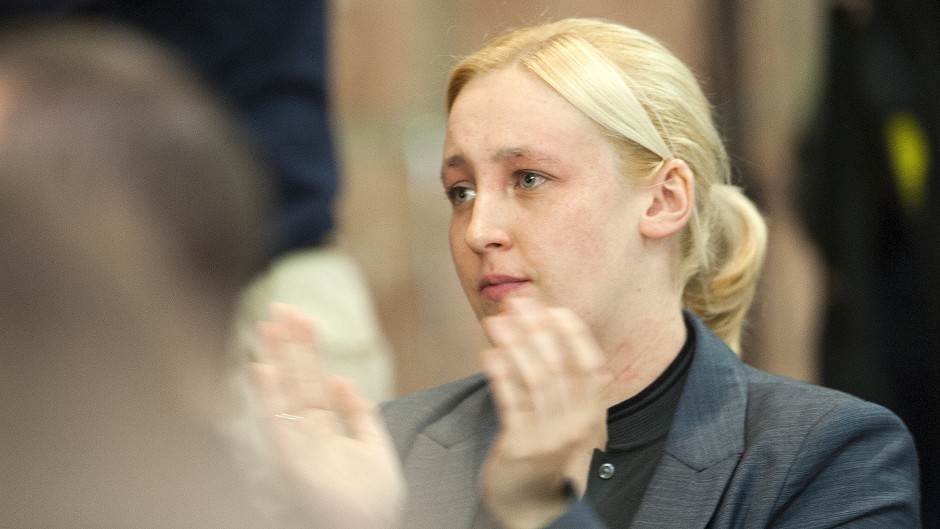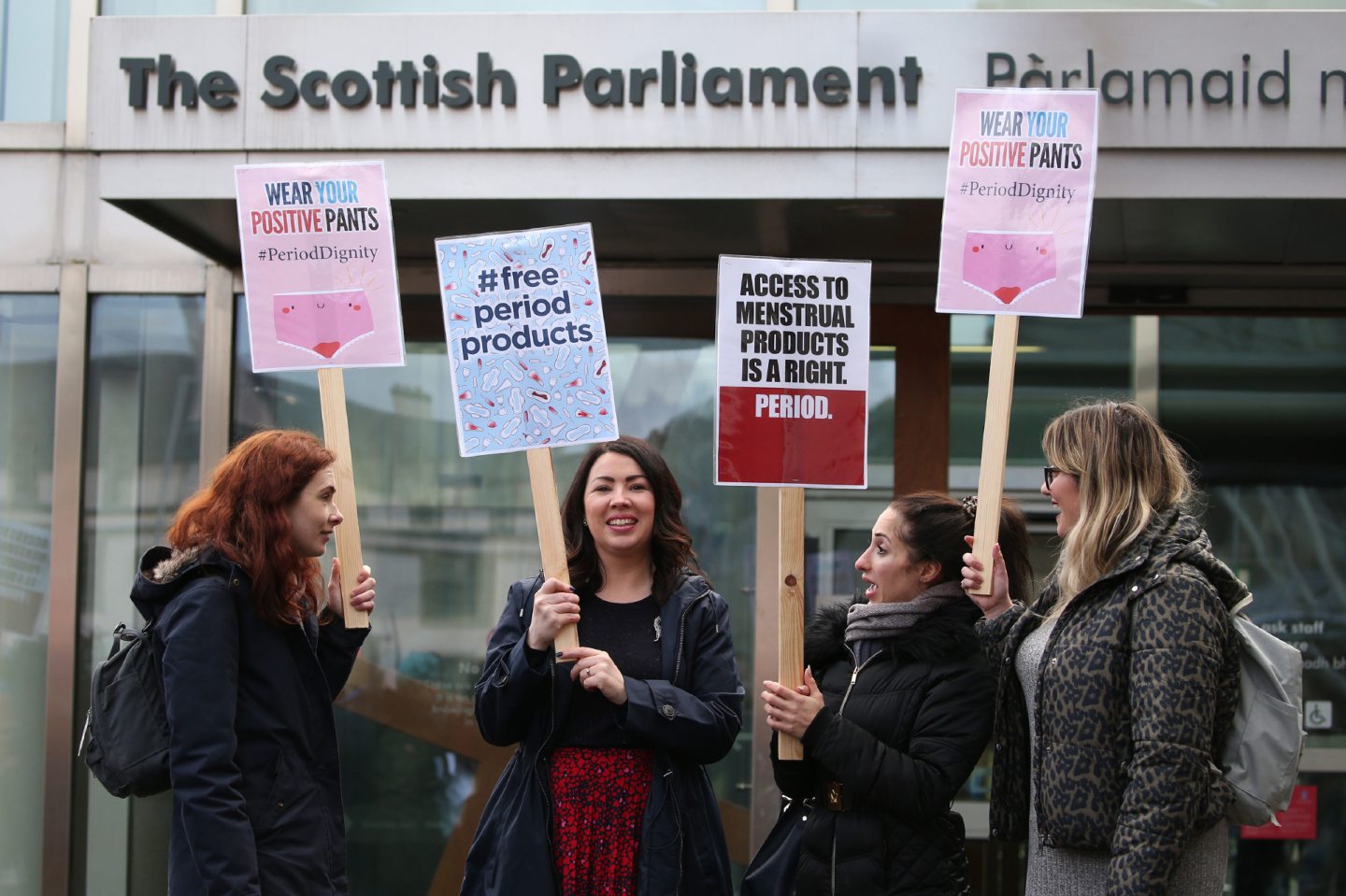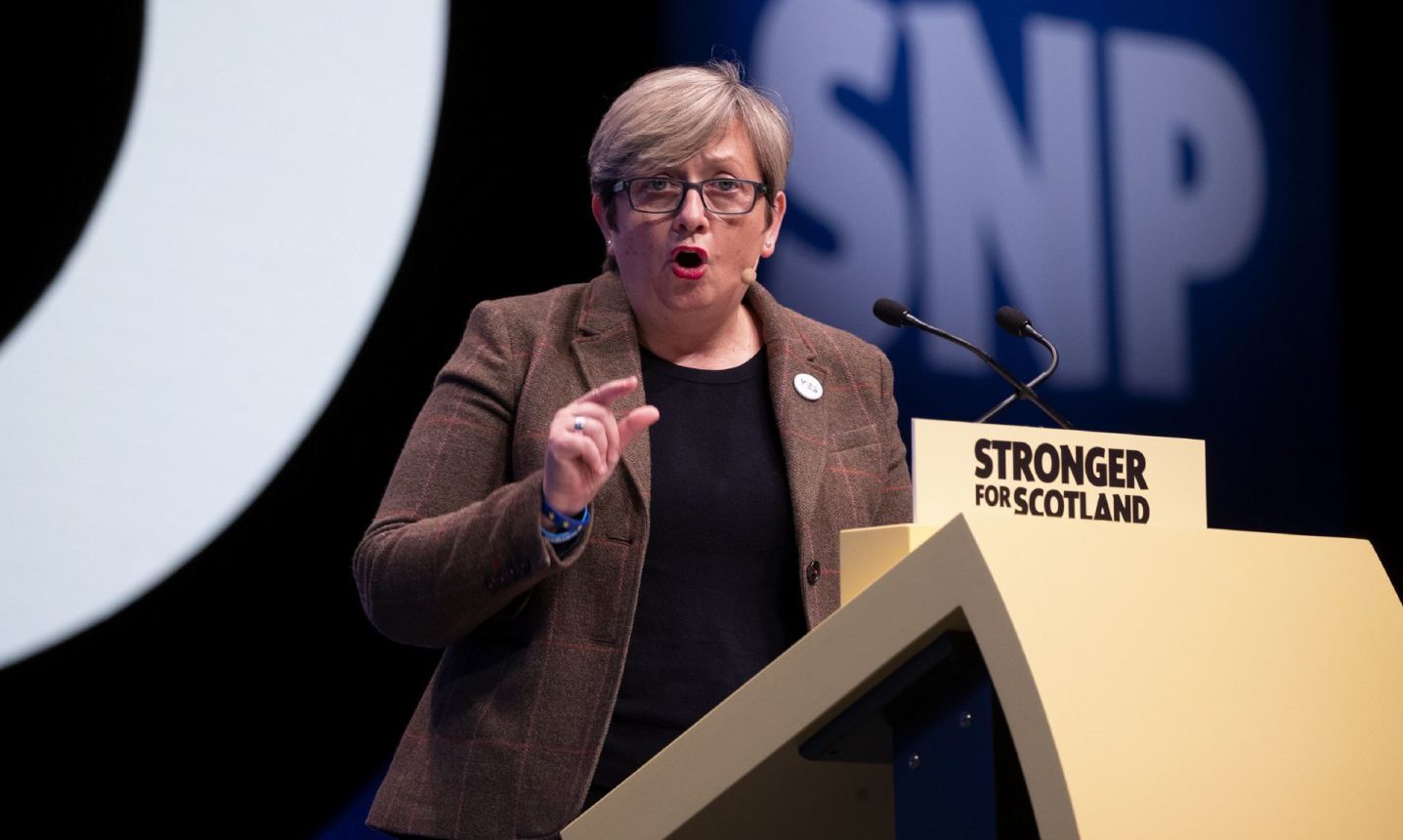
Social media exploded when SNP MP Mhairi Black announced last week she was quitting the “toxic” culture at Westminster at the next general election.
For her supporters, here was proof that another highly-regarded politician was being forced out of parliament by the sniping and backbiting and what Black described earlier this month as “one of the most unhealthy workplaces that you could ever be in”.
Yet, while First Minister Humza Yousaf described the 31-year-old as a “trailblazer”, and his predecessor, Nicola Sturgeon, said she hoped Black would stand for a seat at Holyrood in the future, the subsequent abuse, encompassing sexism, homophobia and misogyny, on such platforms as Twitter and Facebook, hinted at a wider problem.
Namely, why is it that women are so often on the receiving end of a mountain of bile whenever they enter the political arena? And, given the experiences of females across all the major parties, why would any talented youngsters choose to stand for office?
These are pressing issues, but the cross-party response from former and current MPs and MSPs hardly suggested they are optimistic about the future. Quite the opposite.
‘No doubt’ females receive more abuse
Kirstene Hair, director of Empower Coaching and a former Conservative MP for Angus, is among those who have been targeted for pile-ons and, while she understands strong emotions can be provoked on such issues as the economy, independence and Brexit, she feels that doesn’t justify much of the flak flung at her and colleagues and rivals alike.
She told the Press & Journal: “It’s important to note the difference between those legitimately challenging policy, and those who are seeking to abuse and devalue female politicians simply based on gender.
“There is no doubt that females receive more abuse than men – that was my direct experience and that is still being shared by other women in all parties, here and in Westminster, as we have seen from recent events.
We have to stand together on this
“The current state of affairs is undoubtedly deterring talented women, across the country, from standing up and putting themselves forward for Parliament.
“That is regrettable for a number of reasons, especially given the incredibly positive aspects of the role of an MP or MSP, such as supporting constituents in their time of need and campaigning for change locally and nationally.
“We cannot accept that the daily bombardment of abuse is simply part of a role in public life, and that women just need to become thick-skinned. Conscious and unconscious bias towards women is prevalent across all of society, and it is hurting business, politics and the prospects for women of all ages and backgrounds.”
There’s not much that nationalists and unionists agree on these days, but the SNP’s Women and Equalities spokesperson, Kirsten Oswald MP, echoed these words in expressing her fear that girls and young females might regard politics as a no-go area.
She said: “The online abuse of female politicians is well documented and unfortunately, like far too many of my female colleagues, I have received more than my fair share of anonymous, cruel messages.
“Whilst all MPs and MSPs run the risk of receiving abuse online, female politicians find themselves facing personal attacks instead of criticism for their ideas and politics.
We can’t afford to scare off talent
“The situation is materially worse for MPs of colour, many of whom experience abhorrent racism online. We must all work together constructively to condemn this abuse and harassment, and stamp it out when we see it in our online spaces.
“It is also important that our male colleagues and friends advocate against this harassment and denounce examples of it when they see it.
“We cannot afford to scare off new and diverse female talent from entering politics. Women should be encouraged to join the political arena without fear of harassment. We all have a role to play in ending this vile online abuse.”
‘More action needs to be taken’
Labour MSP Monica Lennon isn’t pretending that matters can be rectified overnight, nor that women aren’t occasionally guilty of abusing opponents when feelings run high. As she said in a speech last month: “This can be a tough environment; it can be brutal and our politics and our Parliament do not always show the country at its best.”
However, she told me this week: “It is appalling that an increasing reason for women leaving their political roles is being cited as online harassment and trolling.
“Unfortunately, there are still too many barriers that stop equal participation in politics, and it is disgraceful that this is one of them.
“I fear that this issue is not being taken seriously enough. More action needs to be taken to tackle harassment and change the culture.
“Political parties and institutions must take more responsibility.”
Ms Lennon is no dewy-eyed ingenue in her sphere. She has fought to tackle period poverty and demonstrated she is not afraid to stand on the front line with other MSPs.
But she offered another reminder of why Westminster and Holyrood can often seem to be hostile environments for those who do not fit neatly into party stereotypes.
‘This is not a boys’ club’
As she recalled: “I attended an event hosted and chaired by [STV broadcaster] Rona Mackay. Some journalists were there to talk about the role of the media in ending male violence against women and girls, and they shared a quite staggering statistic, which is that the vast majority of commentary pieces in our print media – more than 68% – are written by white men.
“We, and particularly the men, have to ask whether we are taking up space. We must all ask ourselves: ‘Am I a gatekeeper? Am I taking up space? Am I hoarding power, or am I empowering others? Why are men more likely to make and take interventions and more likely to refer to their friends? This is not a boys’ club: this is the Parliament of Scotland and we are here to represent the people of Scotland.”
Who is going to steer change?
Prof Sarah Pedersen at Robert Gordon University has studied the part that social media has played in brewing up a noxious culture; a situation which has been exacerbated after the divisive independence and Brexit referendums in 2014 and 2016.
She said: “There is a clear linkage between the abuse of women politicians, both online and in real life, and the decision of many women to avoid becoming involved in politics.
“Women can see that speaking out in the public sphere invites abuse and threats to their safety. This has been borne out by many surveys in recent years. In addition, the abuse is amplified by protected characteristics such as race and sexuality.
“A research project a few years ago found that the politicians who received the most abuse and threats were [Labour’s] Diane Abbott and [the SNP’s] Joanna Cherry.
Ms Cherry has regularly spoken about her battle with online trolls and, in 2021, Grant Karte was given a 160-hour community payback order and ordered not to contact her for five years after sending her “grossly offensive” messages.
Then, just last month, the Metropolitan Police launched an investigation into social media death threats made against her.
However, the MP received more support from author J K Rowling than from many of her own parliamentary colleagues.
So, while Ms Black isn’t the only person to believe that the toxicity has to be challenged, who is going to make it happen?





